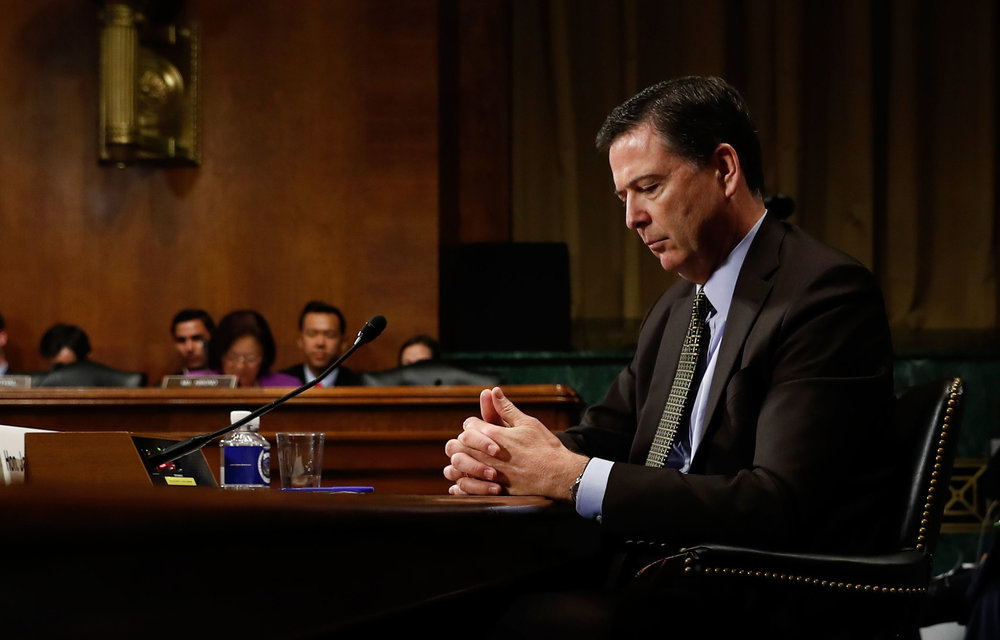How Comey became tangled in the U.S. election – and why it led to his downfall

Tasked with overseeing an investigation into Hillary Clinton’s use of a private email server, the now-fired FBI director earned the chagrin of both parties
FBI director James Comey loomed over the presidential election as a highly contentious figure, an extraordinary predicament for the sitting director of the nation’s top law enforcement agency.
Tasked with overseeing a federal investigation into Hillary Clinton’s use of a private email server as secretary of state, Comey earned the chagrin of both the left and right.
His decision to use a lengthy press conference to clear Clinton of any criminal activity on 6 July – even as he characterized her behavior as “extremely careless” – was met with scorn by Trump and Republicans running to thwart her White House ambitions.
“I know there will be intense public debate in the wake of this recommendation, as there was throughout this investigation,” Comey said at the time.
“What I can assure the American people is that this investigation was done competently, honestly, and independently. No outside influence of any kind was brought to bear.”
That moment swiftly transformed Comey into Public Enemy No 1 on the right, which accused him of giving Clinton preferential treatment as the central plank of their campaign collapsed, after months of arguing that her email use had disqualified her from the presidency.
But just months later, Trump heralded Comey as a hero in what proved to be a decisive moment in the presidential contest.
On 28 October, with only 11 days remaining until the A media frenzy ensued, as did false reports that an indictment was forthcoming. A visibly frustrated Clinton addressed the cameras that same evening, demanding that Comey provide more details so as to lift the cloud of suspicion he had once more cast upon her candidacy.
Days later, Comey cleared Clinton’s name once more. The emails, it turned out, were mostly personal or duplicates of what the FBI had previously examined.
But the damage had been done, according to several polls that marked a dramatic shift among undecided voters who swung toward Trump.
Clinton and her team, to this day, have acknowledged that several factors contributed to her loss. But they have pointedly addressed their anger at Comey, questioning in particular why he chose not to disclose that the federal government was simultaneously investigating potential ties between Trump’s campaign and Russia.
Comey said in May “it makes me mildly nauseous to think we might have had some impact on the election. But honestly, I wouldn’t change the decision”.
Since Trump has taken office, Comey has continually faced scrutiny as the FBI has played a central role in investigations of Trump’s ties to Russia. In March, Comey confirmed publicly for the first time that his agency was investigating possible collusion with Russia in a congressional hearing.
The FBI director told the House Intelligence Committee: “I have been authorized by the Department of Justice to confirm that the FBI, as part of our counterintelligence mission, is investigating the Russian government’s efforts to interfere in the 2016 presidential election.”
He added: “And that includes investigating the nature of any links between individuals associated with the Trump campaign and the Russian government and whether there was any coordination between the campaign and Russia.”
Whatever the outcomes of the congressional and FBI investigations into Trump and Russia, the shadow of Comey will be cast over Washington DC, the Trump White House and the Clinton family for years to come.
(Source: The Guardian)
Leave a Comment